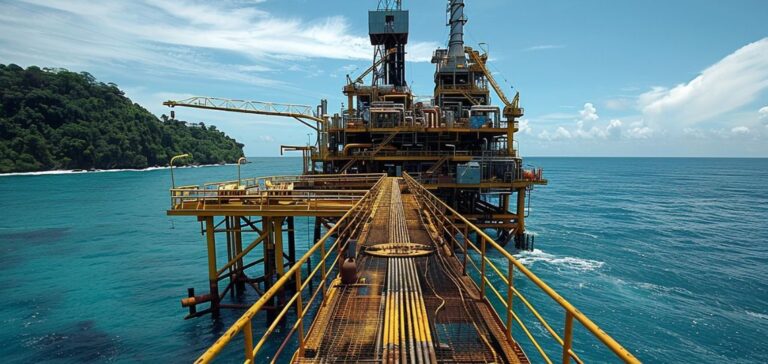Guyana’s President, Mohamed Irfaan Ali, has called for a peaceful resolution to the territorial dispute with Venezuela over the Essequibo region, a 160,000 km² area administered by Georgetown but claimed by Caracas. This statement comes amid rising tensions following the incursion of a Venezuelan military vessel into the contested waters earlier this month.
The Venezuelan military denied any violation of Guyanese territory, stating that it had merely conducted a surveillance mission. Shortly after, the Venezuelan government announced its intention to hold regional elections in Essequibo, a move immediately contested by Guyana before the International Court of Justice (ICJ).
A historical dispute reignited by hydrocarbons
Venezuela’s claim to Essequibo dates back more than a century, but the discovery of vast offshore oil reserves in 2015 has significantly intensified tensions. ExxonMobil and its partners have made substantial investments in developing these resources, making Guyana one of the countries with the highest crude oil reserves per capita.
In April 2024, Georgetown granted a new exploitation licence to ExxonMobil for the Stabroek block, a decision Caracas deemed illegal. The Venezuelan government considers any granting of concessions in this region unacceptable as long as the territorial dispute remains unresolved.
Call for respect of international law
During his speech at the CERAWeek energy conference, Mohamed Irfaan Ali urged his Venezuelan counterpart, Nicolás Maduro, to respect the upcoming ICJ ruling. Georgetown insists on the necessity of a clear legal framework to secure energy investments in the disputed region.
Guyana maintains that the exploitation of oil resources in its waters falls under its sovereignty and accuses Caracas of attempting to undermine regional stability. Meanwhile, Venezuela rejects the ICJ’s jurisdiction, further complicating any resolution through judicial means.
An economic and strategic issue
Guyana’s oil sector has experienced rapid growth, driven by deepwater extraction projects. ExxonMobil and its partners have already recovered a significant portion of their investments in the Stabroek block, and the country is considering expanding its production capacity.
The recently announced Longtail project is expected to produce 1.5 billion cubic feet of natural gas per day and 290,000 barrels of condensate per day. These developments reinforce Guyana’s strategic importance in the energy industry while fuelling its rivalry with Venezuela.
The situation remains uncertain, with significant economic and geopolitical implications for the region.






















